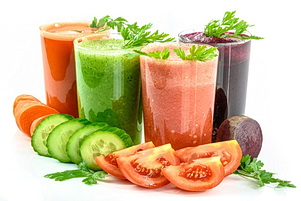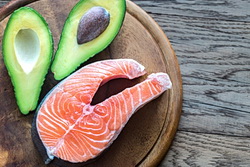
Free radicals are bad for the human body, right? They lead to chronic health conditions, including arthritis, cognitive decline, coronary heart diseases, cancer and can even cause death. To balance out the negative impact of free radicals on your body, you need antioxidants that you can find in fruits, vegetables, and whole grains.
And you may already be aware of the benefits you can get if you go for all the cranberry capsules and the effervescent vitamin C you can find on the shelves. If you are a health-conscious individual, chances are you must have heard a lot about antioxidants and might be working on adding them to your diet. But hold on! Not everything you know about antioxidants is factually correct. In this post, you will find four antioxidant myths busted.
#1. The More, The Better
Antioxidants are essential micronutrients that the human body needs to survive and function effectively. Your body needs antioxidants to counter the effects of free radicals that have a tendency to damage healthy cells in the body. Antioxidants work as donors that provide electrons to the highly reactive and unstable free radicals. These free radicals travel through the body and damage healthy cells, leading to the development of chronic diseases and premature aging.
Moreover, they also help reverse the damage caused by free radicals. While the human body generates antioxidants at the cellular level, they are often not enough, given the number of free radicals produced in the body due to environmental factors. That’s why you need to rely on external sources of antioxidants that come from fruits, vegetables, and whole grains. But does that mean the more antioxidants you consume, the healthier you will be? Of course not. That’s a myth! Higher consumption of antioxidants is not always better.

Antioxidants work best when consumed with other important nutrients. But what is more important is the source of antioxidants. If you are inspired by the marketing gimmicks of the food and supplement industry, you are likely to buy processed foods and packaged cereals and supplements that claim to be a great source of antioxidants.
Do you know that antioxidant supplements may be doing a great job at fighting free radicals in a test tube but when they get inside the body, things change. The human body is complex and these supplements do not cause any good to it. Instead, there are studies that support the evidence that antioxidant supplements can harm the body.
So instead of relying on more processed foods that claim to be rich in antioxidants and consuming supplements, it’s best to stick to the basics and enjoy consuming five servings of fruits and vegetables and three servings of whole grains that are the prerequisite of a balanced diet. These servings from natural sources will provide you with the right amount of antioxidants that you need to stay healthy so you don’t fall into the trap of consuming more antioxidants from processed sources. Best is to find foods and supplements that are organic!
#2. Antioxidants are Difficult to Absorb
 Another common myth is that they are difficult to absorb. Again that information is incorrect. In fact, essential micronutrients that possess antioxidant properties, such as vitamin C, vitamin E, and selenium are readily absorbed and utilized by the body. However, that might not always be the case with supplements that you find on the shelves. Most of the supplements on the market may be doing great in the labs but things are complicated in the human body.
Another common myth is that they are difficult to absorb. Again that information is incorrect. In fact, essential micronutrients that possess antioxidant properties, such as vitamin C, vitamin E, and selenium are readily absorbed and utilized by the body. However, that might not always be the case with supplements that you find on the shelves. Most of the supplements on the market may be doing great in the labs but things are complicated in the human body.
There is inconclusive evidence on how certain antioxidants may behave inside the human body. Moreover, there are studies that confirm that certain antioxidants, when consumed in the form of supplements, contribute to an increased risk of various diseases, including lung cancer.
That being said, if you are inclined towards consuming antioxidants that come from natural sources, such as fruits, vegetables, and whole grains, it’s important that you focus on “eating the rainbow.” Make sure you add a lot of color to your food plate and not just focus on leafy greens. Let reds, yellows, and purples be a part of your diet. And to get the most benefits, don’t forget to add teas and dark chocolate.
#3. Cooking Foods Rich in Antioxidants Can Destroy Their Beneficial Properties
This is a myth to an extent but it is also partly true. There is no black and white when it comes to cooking foods rich in antioxidant properties. Certain cooking methods, such as boiling and steaming are suitable for retaining the benefits of a few fruits and vegetables. However, other methods of cooking such as stir-fry and roasting may affect the nutritional content of antioxidant-rich foods. Since there is no single rule regarding cooking foods that applies to all antioxidant-rich foods, it is best to consume fruits and vegetables in their raw form so you can get the maximum benefits out of what you eat.
#4. All Antioxidants are Vitamins
You must have heard a lot about vitamins C and E and you know they are powerful antioxidants. But do you know that not all antioxidants are vitamins? It’s a myth that most people believe to be true but only a few are vitamins. Others are minerals, enzymes, and trace elements that facilitate the chemical reactions taking place inside the human body. Minerals such as zinc and selenium are powerful free-radical killers. Similarly, enzymes such as glutathione peroxidase and catalase that are produced by the human body are also antioxidants.
Final Words
![]()
While researchers are trying to find out more about antioxidants, one piece of advice that will definitely help you stay healthy is consuming a balanced diet.
By keeping refined carbs and sugar at bay and adding a variety of fruits, vegetables, and whole grains to your plate, you can continue to counter the free radicals produced by your body and enjoy better health!
